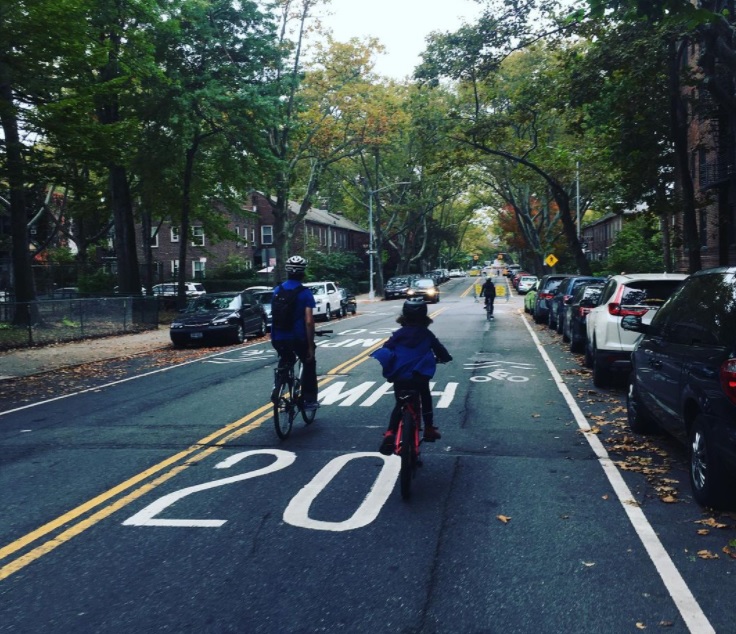
39th Avenue (Photo: Instagram @swopenstreets)
May 11, 2021 By Allie Griffin
The city will create a “bike boulevard” along 39th Avenue in Sunnyside by the end of the year, Mayor Bill de Blasio announced today.
The avenue is one of five streets across the city that will be transformed into bike boulevards by either November or December this year. The Department of Transportation (DOT) will be creating one “bike boulevard” per borough.
De Blasio shared few details during his press briefing this morning as to what the new initiative involves.
According to a press release from City Hall, the DOT aims to slow down cars and limit traffic volume along bike boulevards “to create low-stress bike infrastructure in a pedestrian-friendly environment.”
De Blasio didn’t name the cross streets along 39th Avenue where the bike boulevard would be created.
The City has already converted a section of 39th Avenue, from 45th Street to Woodside Avenue, to an Open Street, which is closed to through traffic from 8 a.m. to 8 p.m. on most days. Local traffic, however, is permitted access for parking, deliveries and drop-offs at all hours.
“[Bike boulevards are] going to come with a variety of measures to make it a safe environment for bicyclists and connect key bike lanes to each other,” de Blasio said during a morning press conference.
The Department of Transportation will present proposals for each bike boulevard to local lawmakers and community boards in the coming weeks.
De Blasio also announced that the DOT will be creating a new protected bike lane along Northern Boulevard to connect the 34th Avenue Open Street in Jackson Heights to Manhattan via the Queensboro Bridge.
The DOT has already installed “Bike route” signs along Broadway, which connects Northern Boulevard to 34th Avenue.
De Blasio announced earlier this year that the DOT will create a new pedestrian pathway on the Queensboro Bridge and convert the existing bike/pedestrian path into bike-only path.
He also said Tuesday that new protected bike lanes will be created along 61st and 62nd Streets in Manhattan, which feed into the Queensboro Bridge.
The new bike lanes will be part of roughly 30 miles of protected bike lanes that the city will construct throughout the five boroughs this year.
“Street safety is a paramount concern for all us in New York City—and here in Queens, that is especially true,” Queens Borough President Donovan Richards said in a statement. “Our cyclists should not feel unsafe when out commuting, and installing more bike lanes will give them the protection they need.”
